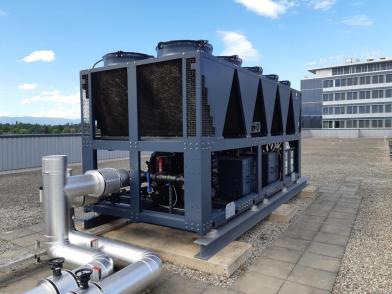

New cooling needs in the chemical industry
European ERP regulations have toughened minimum values for machinery efficiency to reduce energy consumption and protect the environment. In this context, the chemical industry is looking toward new solutions such as magnetic levitation compressors and the use of new eco-friendly refrigerant gases.
In recent years, HVAC systems (ventilation, heating and air conditioning) in the chemical industry have been impacted by values such as energy efficiency, ecology, reliability, flexibility and modularity. Now, the new ERP (Energy Related Product) regulation has further toughened the minimum energy efficiency values for machinery installed in European Union territories, in order to reduce energy consumption, with the resultant economic and environmental benefits.
In this new context, magnetic levitation compressors are gaining traction as one of the most successful solutions for the chemical industry. ‘Its high efficiency, minimal maintenance costs and reliability make this technology the best choice in this sector, easily surpassing the values demanded by the new ERP regulation’, states Rubén Serrano, Commercial Manager of Geoclima Ibérica, a company that has been working on this technology for over 10 years.
Refrigerant gases
Another area of concern in the sector is the use of eco-friendly refrigerants. ‘Gas taxes, increasing maintenance costs and the future non-availability of some gases, have led to the search for new alternatives such as HFO1234ze, a gas with almost zero impact on the atmosphere and global warming potential (GWP) equal to 1, ensuring very high levels of efficiency alongside minimal environmental impact’.
Chemical sector installations need to be very carefully designed and refrigerated reliably and efficiently. ‘The chiller should not only guarantee process continuity but must also ensure that its cooling power adjusts as quickly as possible to fluctuations in system demand, allowing perfect temperature control at all times and under all conceivable conditions’.





